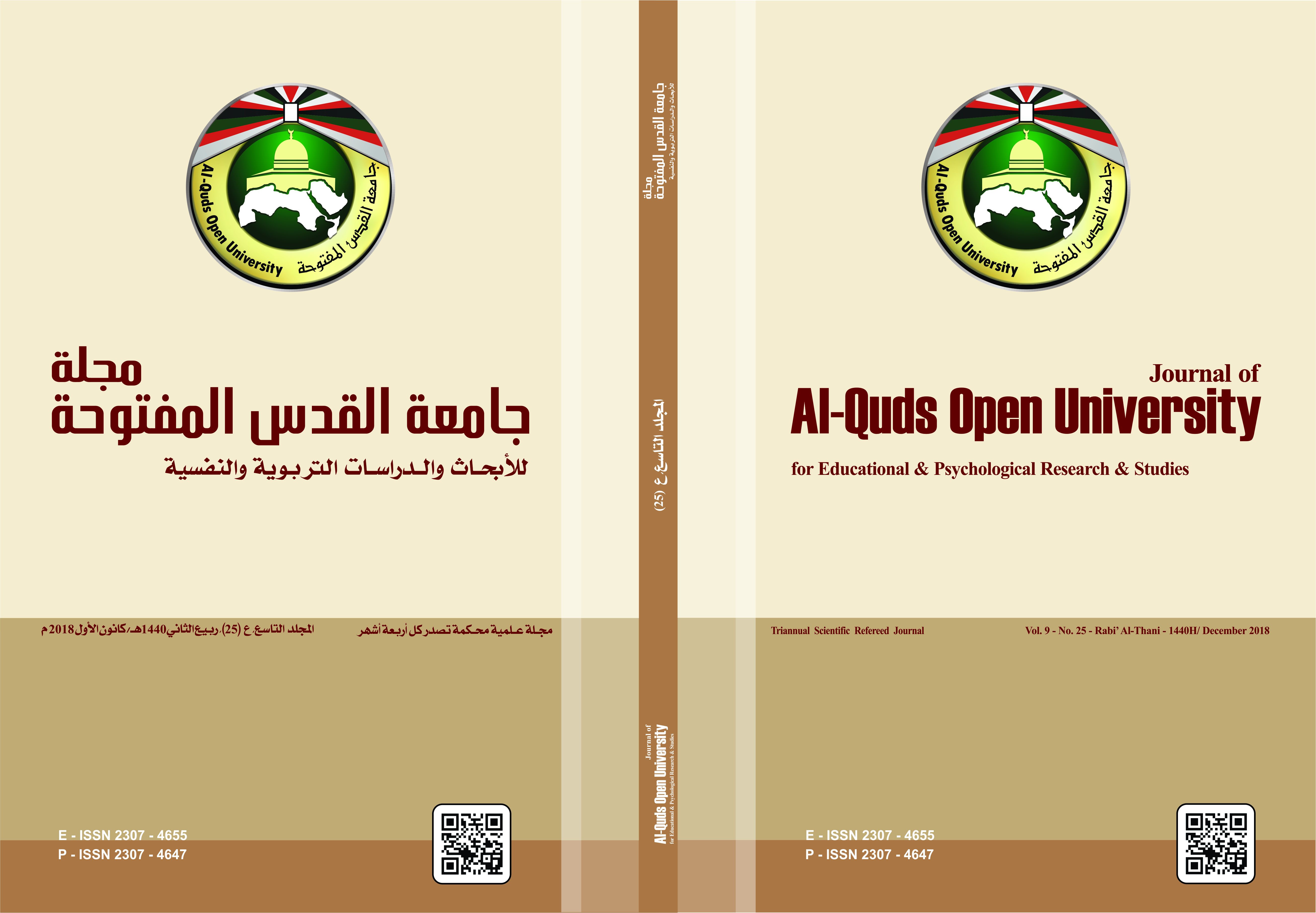The Relationship between the Use of Higher - Order Thinking Skills by Arabic Language Teachers in the Teaching of Literary Texts and Students’ Attitudes Towards it, at the Tenth Grade in Al - Dhahirah Governorate
Keywords:
Relationship - Use - Skills - Thinking – High Texts - OmanAbstract
This study aimed at exploring the relationship between the use of higher - order thinking skills by Arabic language teachers in the teaching of literary texts at the tenth grade and students’ attitudes towards it, in Al - Dhahirah Governorate in Oman. The sample of the study consisted of 670 students. Two questionnaires were designed; one to measure the use of higher - order thinking skills in teaching literary texts by Arabic language teachers, and another to measure the students’ attitudes towards literary texts. Their validity was examined through checking face validity and content validity. Their reliability was assessed through measuring internal consistency in accordance with Cronbach›s alpha. The reliability coefficients were 0. 77, and 0. 73. The results indicated that students are satisfied with the use of higher - order thinking skills by Arabic language teachers to teach literary texts (mean 2. 38) . The attitude measurement suggested that the level of students› attitudes towards literary texts was not satisfactory enough to motivate students to study literary texts (mean 2. 25) . The results also indicated that there is a positive and statistically significant correlation between using higher - order thinking skills by Arabic language teachers in teaching literary texts and students’ attitudes towards it but it is weak (0. 33) . The study recommended the need for urging teachers to develop higher - order thinking skills among students through teaching literary texts, and providing training for teachers to help achieve this goal. The study also recommended the need for reassessing the teaching methods of literary texts, and transforming the content to be more stimulative.
Downloads
Published
How to Cite
Issue
Section
License
- The editorial board confirms its commitment to the intellectual property rights
- Researchers also have to commit to the intellectual property rights.
- The research copyrights and publication are owned by the Journal once the researcher is notified about the approval of the paper. The scientific materials published or approved for publishing in the Journal should not be republished unless a written acknowledgment is obtained by the Deanship of Scientific Research.
- Research papers should not be published or republished unless a written acknowledgement is obtained from the Deanship of Scientific Research.
- The researcher has the right to accredit the research to himself, and to place his name on all the copies, editions and volumes published.
- The author has the right to request the accreditation of the published papers to himself.







2.png)






_2.png)

